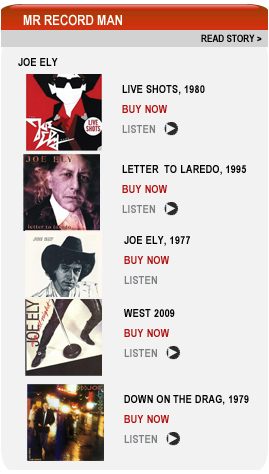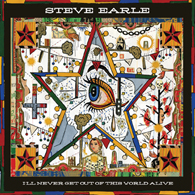
STEVE EARLE
I’ll Never Get Out of This World Alive
Buy Now |
After the Grammy-winning Townes, Steve Earle’s homage to mentor/songwriting-standard-setter Townes Van Zandt, he faced the daunting task of how to return to his own skin for a record that could stand up to such sustained quality. Given Earle’s unwavering standards and fierce modern populism, the bar was set — and he took no prisoners, enlisting T Bone Burnett to gild this 11-song collection which effortlessly swings from the norteño-suggesting opener, “Waitin’ On the Sky,” and the Celtic reel of “The Gulf of Mexico” to the violin ’n’ steel-drenched declaration of self, “I Am a Wanderer.” Whether it’s the spooky reckoner’s taunt “Meet Me In the Alleyway,” with its phased vocals that sound processed through a vacuum hose, the sardonic staccato bluegrass indictment of our ruling class “Little Emperor,” or the finger-picked, Van Zandt-evoking “Lonely are the Free,” which tugs at the conscience for the real cost of freedom, Earle presses into the wasteland that so much of what America stands for has become. This is not about swagger, but the horror of seeing so much of what is brokered for what it really is.
A blue-collar activist and voice of the underclass from the first notes of his 1986 debut, Guitar Town, Earle’s never pulled punches. He is, however, also a big believer in affirming life and believing in truths greater than the bottom line or profit margin. “God Is God” is as potent an endorsement of a Higher Power as any thinking man has offered: recognizing that God has gotten him through, and also that those who purport to know God’s will betray everything the Lord embodies. At the other end of the spectrum is “Heaven Or Hell,” the full-frontal tumble into that burning ring of fire that is raw desire and all-consuming love. A close harmony duet with wife Allison Moorer, this is a stand-off of two strong-willed forces of humanity who can’t turn away and won’t succumb. The tension is a high wire — and it’s strung tight.
That ferocity is endemic of the joy herein. No matter where the songs lead, Earle romps through them with a dead-eye aim and a full-immersion read. This isn’t just a record, it’s an experience to be savored, especially by the man making it. Having considered the phases of America 2011, Earle is still crying foul, still recognizing how fortunate he is, still willing to tell the stories of the ones most people never notice. Once tagged the redneck Springsteen, the Texan expat with the bent to trouble is far more cerebral than the guy hoping for assembly-line work or dry wall hanging. But Earle knows the fighting spirit of the working class and its resilience in the face of whatever too-large odds lie before it. That perspective is what gives “This City,” his Emmy nominated theme from HBO’s Treme series, its head-held-high voice. With a brass section, another circling guitar figure and a funeral-march beat, Earle celebrates New Orleans’ refusal to give in no matter what happens. Picture postcards from the Crescent City dot the lyric that promises, “This city won’t wash away, this city won’t ever drown.”
That eternal refusal to cave is everything Steve Earle stands for. On I’ll Never Get Out of This World Alive, it stands him in a fine stead of good songs, clear vision and a voice that creaks like an oak beam that’s seen its share of tornadoes.
— HOLLY GLEASON
|
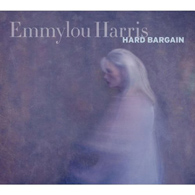
EMMYLOU HARRIS
Hard Bargain
Buy Now |
Throughout her career, Emmylou Harris has served as the sweetheart of the rodeo, progressive traditionalist, siren of the alt-country movement and a songwriter who knows no boundary. In recent years, working with Daniel Lanois and Buddy Miller, there was a conscious move to atmospherics and clouds of emotion — which served the Alabama-born Harris’ silvery voice, offsetting its luminous quality with a diaphanous curtain of musicianship. Hard Bargain, Harris’ latest, continues placing her shining voice front and center on the first collection of songs she’s penned since the soul-plumbing Red Dirt Girl. Teaming with Jay Joyce, the producer best known for Patty Griffin’s Flaming Red and the first albums by hyper-kinetic Kentucky rockers Cage the Elephant, the evocative musicianship has been bulked up by leaning down.
Three musicians — Harris, Joyce and multi-instrumentalist Giles Reeves — conjure waves of sound that create a fullness for the stories to float upon. Whether the banjo-speckled Ron Sexsmith-penned title track, the buoyant dog-rescue kicker “Big Black Dog” or the rat-a-tatt starkness of the social commentary and empathic history of a lynching-cum-elegy “My Name Is Emmett Till,” the recording reveals the songs’ complexity by leaving room to breathe. A searching work, Hard Bargain pulls no punches. Harris looks straight into the legacy of her mentor Gram Parsons, barely exhaling, “To everything there is a season, every blessing has a cost/So I took what you left me, put it to some use …” on the hard-shuffling opener, “The Road.”
Tone set, Harris considers the difficulty of finding love as we mature (the weightless, yet aching “Lonely Girl”), the loss of her dear friend Kate McGarrigle (the Appalachian “Darlin’ Kate”) and the suspended exhaustion of modern life (the hushed waltz “Good Night Old World”) — as well as the fierce strength of the vibrant Cresent City (“New Orleans”), self-reliance as virtue/burden (the rhythm-driven “Nobody”) and a swaggering truth ’n’ road life percolater (“Six White Cadillacs”).
Somehow for the dour recognitions, Harris believes love is infinite — and she reaches towards the vastness. There is an otherworldliness to the album’s closing “Cross Yourself” that is neither hardcore God nor New Age boosterism; rather it is a celestially-grounded hymn of attraction, consolation and the willingness to embrace what lies ahead. Spirituality? Absolutely. But it’s more the comfort of knowing that eternity is now, love is truth and willingness is the ticket in. Harris, who has loved greatly, lost profoundly, maintained her integrity over four decades and continues to follow her muse rather than the marketplace, is truly the distaff side’s Neil Young. Willing to pull back the curtains on doubt, frailty, primary need and reality, she comes at her latest record with an even greater vulnerability than most introspective songwriters embrace. Is there a happy ending? Hard Bargain suggests that if you lead a moral life, the outcome is all in how you choose to view it.
Beyond social consciousness and a near Buddhist compassion for self, others and the cosmos, Harris remains a curious soul about the rhythms, dynamics, parts and solos that exist in service to that magical voice. Joyce understands her instrument, how to set it off, but also how to create arrangements that truly support the emotional core of each song. A wonder — and the hint that there’s more and better to come. — HOLLY GLEASON
|

CODY CANADA AND THE DEPARTED
This Is Indian Land
Buy Now |
If things had played out differently — or, let’s face it, the way most Cody Canada fans probably would have preferred — this would have been a Cross Canadian Ragweed record. Even before the release of what turned out to be Ragweed’s swansong, 2009’s Happiness and All the Other Things, Canada insisted that the follow-up effort was going to be a tribute to their favorite Oklahoma songwriters. By early last year, they’d started rehearsing, road testing and recording some of the material, like the Randy Pease-penned love song for a pawnshop guitar, “The Ballad of Rosalie,” and they even joked about calling the album Contractual Obligations — a parting middle finger to the Nashville-based major label that they’d been signed to since 2002. But then the band broke up, ostensibly because drummer Randy Ragsdale wanted to spend more time with his family. They honored a handful of dates still on the books, but by early fall, frontman and lead guitarist Canada and bassist Jeremy Plato were forging ahead with the Departed, their new band with Texas blues guitarist Seth James and two other old friends from Oklahoma, drummer Dave Bowen and keyboard player Steve Littleton. This Is Indian Land, Ragweed’s orphaned Okie-tribute project reborn with a much more honorable name, is the Departed’s maiden voyage.
It’s also, front to back, the best damn record that Canada’s ever made.
Make no mistake: On a good night, Cross Canadian Ragweed was hands down the mightiest Red Dirt/”Texas music” band of its generation. But for all their chemistry as a unit and success over their 15-year run, they never made a studio or even live record as full-on entertaining as this, let alone one with the bar set so high in terms of material. Ragweed wrote more than a fistful of solid songs, but This Is Indian Land cherry picks its cuts from some of the finest songwriters the OK State has produced this side of Woody Guthrie. Admittedly, most folks not intimately familiar with that scene will have probably only ever heard of three of them: Leon Russell, J. J. Cale and Kevin Welch. But others, like Tom Skinner, Greg Jacobs, and the late Bob Childers aren’t represented here because they came up as pups at the same time as Ragweed, a la Stoney LaRue or Jason Boland; rather, they’re here because there wouldn’t have been a scene for said young guns to come up on without them. There’s 15 songs on this album, and not a dud in the bunch; it’s enough to make even the most stubborn of Texas songwriter fans sit up and take notice of how much serious talent there is north of the Red River, too.
As good as the songs all are here, though, it’s the performances that really shine. Had Canada made this album with Ragweed, the result would have been an entirely different and arguably inferior beast, if only because it would have been all too easy for a band with that much history together to knock out a covers album on autopilot. But the Departed is a band with something to prove — and the collective balls to not just pick up where Ragweed left off. The voices of Canada and Plato (who sings lead on one song, “Long Way to Nowhere”) sound familiar enough to lure old Rag-fans in, but the introduction of former jazzbo Bowen’s swinging drums, Littleton’s rollicking piano work and especially James’ soulful, roadhouse blues licks as a foil to Canada’s own more “Wang Dang Sweet Poontang”-flavored classic rock chops, keep the record wildly satisfying and full of sonic surprises the whole way through. There’s no easing into it, either: Randy Crouch’s way-out-there space jam “Face on Mars” opens the set, and even that’s not half as funky as the band’s Shaft-worthy swagger through Kevin Welch’s “True Love Never Dies.” Welch himself pops up to share vocals on another song of his, “Kicking Back in Amsterdam,” while Leon Russell’s “Home Sweet Oklahoma,” J.J. Cale’s “If You’re Ever in Oklahoma” and Tom Skinner’s “Water Your Own Yard” are all served up with swaggering groove to spare. And the more laid-back fare is equally compelling. You can practically smell the fresh-brewed coffee and feel the breeze through the creaky old screen door in the Bob Childers/Medicine Show co-write “Make Yourself Home,” and Greg Jacobs’ beautiful “A Little Rain Will Do” takes best-of-show with not only the album’s finest melody and lyric, but an absolutely flat-out stunning vocal by Canada.
Where exactly Canada and the Departed go from here should be interesting. They’ve certainly got their work cut out for them in the songwriting department. But if the performances captured on This Is Indian Land are merely a tease of what this band can do when it’s just getting warmed up, these boys from Oklahoma and their adopted Texas blues brother are primed for a ferociously entertaining ride. — RICHARD SKANSE
|

SARAH JAROSZ
Follow Me Down
Buy Now |
Most 17-year-olds wouldn’t have a clue what to do in a recording studio, much less pull off a Grammy nomination for a debut album they co-produced. To co-helm an even better follow-up, populated by some of the world’s brightest musical talents — before hitting 20 — is just about unheard of. Which is why Sarah Jarosz’s talent is almost scary to contemplate. If she’s already this amazing, what will she sound like in 10 years?
Maybe her career will unfold like that of Alison Krauss, though Krauss isn’t known as a songwriter. Jarosz already proved her prodigious songwriting skills on that debut, Song Up in Her Head, along with her equally massive vocal and mandolin/banjo/guitar-playing abilities. There’s just something wonderful about listening to her, something thrilling about the combination of maturity and unadorned freshness in her voice and music. She’s the kind of talent that’s so astonishingly real, you get the feeling she never had to study a note — though of course, she’s such a consummate professional already, you know she’s been studying forever. To be able to hold her own in the company of Jerry Douglas, Vince Gill, Dan Tyminski, Stuart Duncan, Darrell Scott, John Leventhal, Viktor Krauss, the Punch Brothers and Chris Thile (a friggin’ who’s who of string stars, plus Shawn Colvin and Sarah Siskind on harmonies) — and give them direction as well — that takes some self-assurance.
The Wimberley, Texas, rising star clearly has at least a little chutzpah; this time, she covers both Bob Dylan (the beautifully string-laden “Ring Them Bells”) and Radiohead (“The Tourist”). Her own gorgeous compositions range from the delightful instrumental “Old Smitty,” which would have been at home on Ken Burns’ The Civil War soundtrack, to the alluring “Come Around,” on which Bela Fleck’s banjo helps to build tension, further fueled by Casey Driessen’s strategic violin bowing.
Jarosz’s Radiohead-inspired “My Muse” is a moody masterpiece. The melancholy sweetness of her high notes, the way she almost sighs “my muse,” has the effect of a siren’s call, as if she’s the muse, inviting unsuspecting sailors toward those dangerous rocks. But it’s not a violent song at all; on the contrary, the melody has a very soothing quality. It’s a love song; she sings of contentment. Perhaps satisfaction with her life so far has allowed her to reach the heights she already has. If this album doesn’t earn Jarosz a Grammy, sooner or later, one will. And chances are that by the time she’s 30, it’ll have lots of company.
— LYNNE MARGOLIS
|

BOB SCHNEIDER
A Perfect Day
Buy Now
|
Two years ago, Bob Schneider split the bull’s eye. The Austin-based songwriter’s “40 Dogs (Like Romeo and Juliet),” a fluid masterwork from the otherwise scattershot Lovely Creatures, swiftly soared above early highpoints (“Metal and Steel,” “Captain Kirk”) to mark his singular apex. At least one Central Texas radio station still reminds listeners several times weekly. Schneider’s A Perfect Day has no equivalent standout. Not even close. Be grateful. Absent a spotlight stealer, this excellent collection shakes (“Peaches”) and snakes (“Honeypot”) with steady effervescence throughout. As always, Schneider doubles down on heart (“Let the Light In”) with humor (“Yeah, I’ll Do That”). He fortifies potent hooks (“Am I Missing Something”) with clever wordplay (“Funcake,” “Dirtmouth”), and deftly outlines his narratives with maturity. “Every day my dreams seem farther and farther away,” the 45-year-old declares unsentimentally as a positively cheery chorus brightens his weighty yearning (“Penelope Cruz”). That’s clearly key: sifting sunlight through shadows. At turns, Schneider confronts mortality directly — “God will destroy everything you love,” he allows nonchalantly on “Everything You Love,” “if you live long enough” — but a buoyant melody always counters. Schneider designed the approach purposefully. “The subject matter [in ‘Everything You Love’] is a little darker, but musically it’s still upbeat, happy,” he explained in mid-April on Austin’s KGSR 93.3 FM. “I like that dichotomy of the music being different than [the message].” Rare blemishes (“Everything Is Cool,” “Another Bad Idea”) lack that delicate balance, but this new song cycle ultimately proves Schneider’s most cohesive since 2001’s Lonelyland. — BRIAN T. ATKINSON
|

JASON ISBELL AND THE 400 UNIT
Here We Rest
Buy Now
|
Jason Isbell’s Here We Rest is filled with may-not-be-able-to-deal-with-it melancholy and a truly rare balance of deft nuance and gut-wrenching directness. Traveling somewhere between John Prine at his smartest, bluest, and most observant and the Muscle Shoals glory years, Isbell bounces between suicidal resignation, uncertainty, regret, and a glimmer of hope in this suite about lost love and the recovery from it. These are blue-collar songs of hard livin’ and painful loss that must be worked out in a van or on a stage while trying to pay the bills. From the first plaintive notes of “Alabama Pines,” where a man is moving into an apartment and trying to make sense of and reassemble his life after a break-up, Isbell issues killer song after killer song; there isn’t a weak moment on the entire set. Highlights include “Codeine,” which has a hook that will haunt you in the wee hours of the night; “Heart On A String,” a Muscle Shoals soul number that could’ve been a radio hit in the days of Otis Redding; and the final “Tour of Duty,” a wry, wise homage to this generation’s returning soldiers filled with poignancy, maturity, a quiet non-partisan patriotism and choke-you-up lines like “we’ll laugh like little children telling secrets/probably cry like old women drinkin’ gin.” A quiet masterpiece that truly separates Isbell from his former band Drive-By Truckers, Here We Rest ranks with Lucinda Williams’s Car Wheels On A Gravel Road and qualifies easily as one of the top candidates for 2011 album of the year.
— WILLIAM MICHAEL SMITH
|
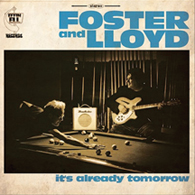
FOSTER AND LLOYD
It’s Already Tomorrow
Buy Now
|
In the great Nashville credibility scare of the late-80s that gave the world Steve Earle, Lyle Lovett, Dwight Yoakam, Rodney Crowell and k.d. lang, Foster & Lloyd made shiny happy music for country ‘n’ suburbans – walking a fine line between the Nick Lowe/Dave Edmunds rockabilly/power-pop-punk axis and an Everly-esque Appalachian rock. With Radney Foster’s strong Texas drawl and Bill Lloyd’s Kentucky-grounded Big Star/dBs lean, the duo worked tight harmonies and hooks dipped into aw-shucks romance for a handful of hits that gave college radio fans an on-ramp to something post-Johnny Cash.
Twenty years later, the pair have reunited in their Byrds/Beatles bungalow out by Buck Owens’ place for a 13-song collection that moves through wide-eyed love songs for grown-ups who know better. Big-twang guitars, wide-open vocals, especially from the deeper-voiced Foster, whose timbre is now more hickory ‘n’ rawhide, and a dominant jangle make songs about girls, commitment, triumphs and overcoming challenges seem both euphoric and attainable. Sheer fun back when, wiser but no less euphoric now, for anyone who remembers — or anyone who wishes to reach for a more innocent roots-pop pleasure — It’s Already Tomorrow hits the note. Figure bass parts from Cheap Trick’s Tom Petersson and E Streeter Gary Tallent, mandolin from Sam Bush and steel from Lloyd Green means the pair wasn’t messing around. Whether a skulking shuffle on their Guy Clark co-write, “Picasso’s Mandolin,” the breezily d’amour-reckoning title track, the quietly tugging “When I Finally Let You Go” or the Bo Diddley-beat “Hidin’ Out,” the arrangements’ nubile nature, the guitar tones and the heart-over-heels sentiments go straight to one’s head. For a feel-good cocktail of the rush of being young tempered with a little hard-earned wisdom, this is post-modern jukebox country that draws on the Burritos, Robyn Hitchcck and the Raspberries in the name of something sweeter the second time around. — HOLLY GLEASON
|
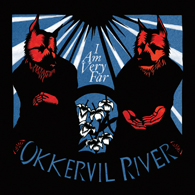
OKKERVIL RIVER
I Am Very Far
Buy Now |
Though the songs beg for interpretation, one hesitates to hazard guesses about what might have been inside Will Sheff’s head when he composed Okkervil River’s first album in three years, I Am Very Far. Like a fever-dream rock opera, Far’s 11 cuts are densely layered, both sonically and lyrically. The result is confusing, convoluted and ultimately brilliant — though that doesn’t seem like quite a strong enough adjective to describe what feels more like an epic poem than an album.
Like Homer’s Iliad and Odyssey, Far is full of the most lovely and disturbing imagery, often juxtaposed like double-exposures. In “Wake and Be Fine,” whose lyrics read as if they were inspired by the book Einstein’s Dream, Sheff even refers to someone speaking his dream to him — from inside it. In the opening song, “The Valley,” a catchy and insistent rocker, rock ‘n’ roll itself becomes like a villain — singeing, hanging, skinning and killing its victims, so to speak. “I hear a breeze that wheezes through the tips of the pines,” Sheff sings, “where there’s laughter and screaming to the rafters in the night. The moon rolls dreaming through the late spring sky, where our friend lies bleeding through his jacket and tie. A slit throat makes a note like a raw winter wind. We were piled in the river with the rock and roll skinned.”
That’s followed by “Piratess,” on which Sheff starts out sounding like David Byrne before morphing into Robert Smith. It’s dramatic and scary, like so much of this album (perhaps he took cues from Texas psych-rock legend Roky Erickson, whom Okkervil backed on 2010’s acclaimed True Love Cast Out All Evil). Many of these songs swell and build almost to the bursting point, filled full with inventive instrumentation and oddities such as a flung file cabinet and unspooling duct tape. Though “White Shadow Waltz” is rather overwrought, “We Need a Myth” takes on the urgency of a Springsteen song. It’s a tour de force, a centerpiece that seems to be suggesting the messiah is a myth (shades of the Who’s Tommy?).
Maybe there’s no delivery from the fears Sheff expresses in almost every lyric (“Your Past Life is a Blast,” “Lay of the Last Survivor” and “The Rise” are particularly affecting), but there is, at least, the intriguing notion that he may be playing with words the way he plays with sounds. And whether they carry deep personal meanings or simply serve as imagery, his ability to create beauty and horror simultaneously, and marry it with such rich music, is the equivalent of what Hitchcock did with film. Sheff is, indeed, a musical auteur. It’s a good bet he could pull just about anything off. — LYNNE MARGOLIS
|
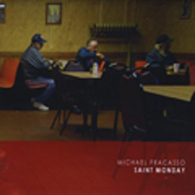
MICHAEL FRACASSO
Saint Monday
Buy Now |
It was pretty much a given that the latest album by Michael Fracasso would be good — very good, even. The surprise here is that it’s also so much fun. The Ohio-born, Austin-based songwriter is renowned by those-in-the-know as a magician of exquisitely crafted melodies and poetic lyrics, with a goosebump-stirring voice to match. But on Saint Monday, he comes out rocking with John Lennon-conviction — and that’s before he even gets around to his stone-cold killer cover of “Working Class Hero.” You can hear it in the way his voice quivers just so — and just so right — on the word “satisfied” in the opening “While the Night Is Young.” The chaser, “Eloise,” is just as exhilarating; it’s a snappy little pop rocker that sounds like it was composed live on the studio floor, with Fracasso joyfully tossing out lines like, “Eloise, Eloise, the bass drum and piano keys are pounding out a melody, aching for your love.” But rest assured that the magician/craftsman/poet Fracasso is heard here, too, most notably on the stately, majestic title track and the equally lovely “Gypsy Heart.” The former is a weary sigh from the edge of defeat, a desperate man’s half-hearted (but beautiful) prayer for a ray of hope. In the later, he marvels at the way salvation can catch you completely unawares, in ways both unexpected and wonderful: “She took away my heavy heart and she did not ask … She gave me three wishes, now I still have two/I said, ‘Hey now, Darling, all I really want is you.’” Pure magic.
— RICHARD SKANSE
|
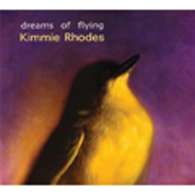
KIMMIE RHODES
Dreams of Flying
Buy Now |
While there’s a department of it in Washington, D.C., one must really question if there’s any justice in a country that can’t recognize what Willie Nelson did years ago: that Kimmie Rhodes is an “undiscovered superstar.” Yes, he was probably smokin’ something the Feds would frown upon at the time, but the fact remains that native Lubbockite Kimmie Rhodes is just as deserving of mention in the same revered breath with fellow West Texan musical legends such as Buddy Holly, Roy Orbison, and the Flatlanders. And no, we’re not smokin’ anything. But don’t take our word (or Willie’s) for it. On Dreams of Flying, Rhodes makes the case just fine on her own, with the same elegantly crafted, soulfully beautiful and perceptive-songstress ease that she has for years, both under the radar and on somewhat more high-profile (relatively speaking) releases, like 1996’s West Texas Heaven on Justice Records.
You may be able to take the songwriter out of West Texas, but the best ones never get those lonesome plains and that endless searching for something beyond the horizon out of their system. Or their craft. Interestingly, that is most apparent on the only cover on Dreams of Flying, Donovan’s “Catch the Wind,” because in the hands of Rhodes and her duet partner, Joe Ely, the sad futility of trying to catch the wind also holds the longing hope that someday it may just be possible. The trick Rhodes pulls off so masterfully on her best original songs here (“One by One,” “Not a Cloud,” “Start Saying Goodbye” and the title track) is singing of simple, often bittersweet sentiments and scenes with such tender, daydreamy wonderment, optimism, and acceptance. On “New Way Through,” she observes, “the clouds are high, and there’s one that looks like Elvis only thinner/Isn’t it like a cloud, to be driftin’ like a lost begin-againer/trying to be a winner and looking for a new way through the world?” — GLEASON BOOTH
|

BRANDON JENKINS
Under the Sun
Buy Now |
When Brandon Jenkins sings “Nothing new under the sun, baby — it’s all been done before,” on the title track of his 10th album, you gotta give him points for self-awareness and truth-in-advertising. The Tulsa-rooted, Austin-based Jenkins has long been one of the most reliably consistent artists on the Red Dirt music scene, so rest assured that if you’re a fan of his manly-but-not-excessively-fearsome country growl, his roadhouse honky-tonk/blues-rock guitar chops and meat-and-potatoes barroom anthems (a la “Down in Flames”), then Under the Sun is gonna stick to your ribs and not leave you hungry again in an hour. That said, though, there’s not a whole lot on Under the Sun that’s particularly memorable — though things do get a little more interesting in the second half. That’s where you’ll find the good stuff, like his own version of “Drag,” a co-write with Cody Canada that was also one of the highlights of Cross Canadian Ragweed’s last album, 2009’s Happiness and All the Other Things. Jenkins’ recording of the song isn’t quite as razor sharp as Ragweed’s was, but it still cuts a pretty cool groove. Ditto “Perfect Slave,” which is by far the edgiest track on the record: all stomp, thump and snarl, spiked with a wicked, snaky guitar riff that wouldn’t be out of place in AC/DC’s playbook. The quieter “No Word From You,” meanwhile, is a convincingly moving expression of lover’s angst, and “No More” is a truly exceptional, brooding outlaw’s lament. — RICHARD SKANSE
|
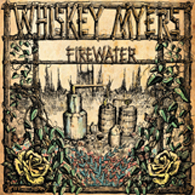
WHISKEY MYERS
Firewater
Buy Now |
Shout out a request for “Freebird” at a Whiskey Myers show, and chances are the Tyler, Texas-based quintet will not only oblige, but slam that bird down your throat so hard, you’ll be sprouting feathers out your backside. In other words, damn straight, these boys sound like Skynyrd — along with equal doses Molly Hatchet, the Black Crowes and every other band of denim-loving longhairs to ever swagger out of the deep South with snarling guitars and a slamming rhythm section. “I still fly that Southern flag,” frontman Cody Cannon declares with plaintive pride on “Ballad of a Southern Man,” which verse-for-verse is as earnest a display of conservative values as anything this side of a Lee Greenwood concert. Cannon seems well aware that such sentiments might alienate some (“I guess that’s something you don’t understand,” he offers with a dismissive shrug), but ultimately the only message that really matters on Firewater, the band’s hard-charging second album, is spelled out in a later song: “Turn It Up.” There may not be much in the way of pure innovation here, at least not to anyone who knows their way around the classic rock radio dial; but when guitarist Cody Tate goes for the jugular and the rest of the band follows vicious suit — most notably, on the opening one-two punch of “Bar, Guitar and a Honky Tonk Crowd” and “Guitar Picker” — resistance is futile.
— RICHARD SKANSE
|

IAN MOORE AND THE LOSSY COILS
El Sonido Nuevo
Buy Now
|
Ian Moore’s career has veered between rock-guitar master and artsy singer-songwriter, and this time his creative swerve has taken him toward the best sounds of mid-70s to late-80s U.K. pop rock. El Sonido Nuevo finds the Austin/Seattle songwriter working through his jones for Electric Light Orchestra, Rockpile, Brit glam bands like Roxy Music and Queen, and George Martin studio grandeur. It demonstrates beyond doubt that Moore has become the guitar-slinger badass everyone always predicted he would since his earliest prodigy days in Austin, when Stevie Ray comparisons ran rampant and painted Moore into a creative corner for a while. But Moore is definitely his own man these days, and this rocking set is as muscular as anything he’s done since his early releases. From the first Billy Bremner-like riff of opening scorcher “Secondhand Store,” everything — the playing, the harmonies, the Britsy studio effects — is done to the point of perfection. And delightful lines like “I feel like a vegan wearing a bacon robe” that just pop out of Mr. Moore’s mouth without the slightest bit of tongue-in-cheek are the icing on the cake. — WILLIAM MICHAEL SMITH |
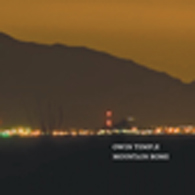
OWEN TEMPLE
Mountain Home
Buy Now
|
Texas is the kind of place where a town can be called “Mountain Home,” even though its elevation is a mere 1,909 feet — hardly the height of serious, snow-capped peaks. (Even though we like to think so, not everything’s bigger in Tejas.) That’s where Owen Temple grew up, on land as contradictory as its name: rocky, cedar-covered and dry — except when the flash floods come. And Temple’s songs seem to bear that same dichotomy, in a way. They’re inhabited by people trying to be something they’re not, passing through places that aren’t quite what they’d hoped. Some of these songs use geography like another character; “Desdemona” is set in the oil-boom town, but Temple imagines the woman who gave the place its name and sings about her. “Jacksboro Highway” is a seedy stretch where a lot of no good takes place, and “Small Town” … well, anyone who’s ever spent time in one knows exactly what this song’s about.
Many of Temple’s tunes sound like they were written for other people, and maybe they were; “Medicine Man,” for example, belongs in the hands of someone like Ray Wylie Hubbard. “Fall in Love Every Night,” a bittersweet bar-singer’s lament, could be more powerful with another performer’s passion behind it. But the two-time Kerrville Folk Festival New Folk Finalist (2007 and 2011) and 2007 B.W. Stephenson Songwriting Competition winner has some muscle at his back; players on the album include Charlie Sexton, Brian Standefer, Adam Carroll, Tommy Spurlock, Bukka Allen, Rick Richards and Gordy Quist, who lends a gentle R&B/gospel influence to the aforementioned “Medicine Man.” Mountain Home may not be an oil gusher of a disc; Temple’s own performance is decidedly understated. But there’s something bubbling under the surface, all right. Maybe it’s a rocky hill trying to become a mountain. If it could only break free.
— LYNNE MARGOLIS
|
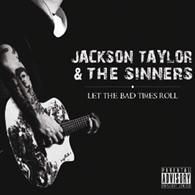
JACKSON TAYLOR & THE SINNERS
Let the Bad Times Roll
Buy Now
|
There are some things that you need to know about Jackson Taylor. He likes to party. He likes to drink whiskey. And he does not give a damn about what you think. His latest release is not really any different from his previous output; Taylor sticks to the same formula that his outlaw heroes made famous, and it’s not hard to figure out who some of his outlaw heroes are. From capturing an infamous George Jones story on “No Show” to his two covers of Waylon Jennings (“Ain’t No God In Mexico”) and Rodney Crowell (“I Ain’t Living Long Like This”), Taylor wears his influences proudly on his sleeve. And to his credit, he pulls the look off just right. He backs it up with solid originals on Let the Bad Times Roll, too: both “Old Henry Rifle” and the title track are patriotic tunes done the classic outlaw way that would make Toby Keith jealous. — SHANE JONES |
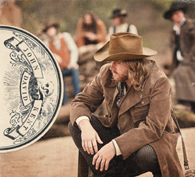
JOHN DAVID KENT
John David Kent
Buy Now
|
In a previous musical lifetime, a teenaged John David Kent played drums in Radish, the North Texas grunge band best remembered as an introductory footnote to indie-rocker Ben Kweller’s successful solo career. Kent picked up other drumming gigs in the immediate aftermath of Radish’s demise, but a decade and change later, he’s moved from behind the kit to the front of the stage as a Texas-country/Americana-leaning singer-songwriter. Based on the evidence of his self-titled debut, Kent’s a natural in this arena, with a strong voice and a definite knack for crafting above-average songs with solid hooks and equally mainstream-ready but not dumb lyrics. The ultra-catchy lead single, “My Girl,” is as irresistible as the sexy tomboy it celebrates, and “Back to the Country” hints at the kind of down-home grit that Kent and his band, winningly dubbed the Dumb Angels, probably dish out in spades in a live setting. Other songs, like “Down to the Water” and “Why Won’t You Stay,” fly closer to a Southern California/Eagles kinda vibe, albeit with equal confidence. That’s not to say the set is filler-free; with 15 songs clocking in at just under an hour, the album is ultimately a little too long for its own good (especially for a debut). But seeing as how his old Radish bud Kweller already has a handful of excellent solo albums under his belt, it’s hard to fault Kent for wanting to make up for lost time. — RICHARD SKANSE |
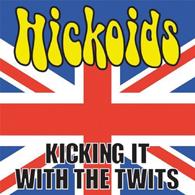
THE HICKOIDS
Kicking It With the Twits
Buy Now
|
Listening to the Hickoids swagger their way through the Elton John/Bernie Taupin chestnut “Benny and the Jets,” it’s hard to believe this is essentially the same band that took home Country Band of the Year honors at the Austin Music Awards in 1985. (Of course, even in 1985 the Hickoids were about as country as Lady Gaga or Taylor Swift, but that’s another story.) The latest project to slither forth from this surly, androgynous Jeff Smith/Davy Jones-led musical circus is a greasy, sleazy set of covers of Brit-rock classics like “Neat, Neat, Neat” by the Damned, Brian Eno’s “Needles in the Camel’s Eye,” and the Rolling Stones’ trashy “Have You Seen Your Mother Baby (Standing In the Shadows)” that is absolutely magnetizing from the first note. In making what may be their best-sounding album ever, the Hicks don’t tinker with the melodies, but they do push them through all the elements that make San Antonio rock unique: the fat conjunto bass lines, the mandatory Augie Meyers B-3 organ jive, and the sonics of classic garage rock. Put the top down on the convertible, push Kicking It with the Twits into the CD player, and crank it, because this is perfect Texas road trip music, especially if a highway patrolman is in hot pursuit.
— WILLIAM MICHAEL SMITH |

D.C. BLOOM
New Man
Buy Now
|
Corporate/political speechwriter by day, singer-songwriter by night D.C. Bloom moved to San Antonio from Washington, D.C., six years ago, and wasted precious little time in playing to the locals’ sense of regional pride with songs like “I Can’t Forget the Alamo,” “The Ballad of Boerne and Alice” and the shoulda-been-a-monster-hit “Manu Ginobili.” On New Man, Bloom’s second full-length release since landing in the Lone Star State, he eases up on the Texas references (apart from an affectionate nod to “Oma’s Secret Garden” in Gruene), but his topical wit remains as sharp as ever. At his breezy best (“I’m Dirty,” “Sexual Tension,” “Sitcom”), Bloom evokes a cross between musical satirist Tom Lehrer and Harry Nilsson at his most whimsical, both lyrically and musically. But songs like “On That Primal Shore” and “Blinded By Faith” suggest there’s a real craftsman at work here, a poet behind the wisecracking jester, while the disarmingly uplifting opener, “Another Day,” betrays a touching sincerity. Like a favorite nutty uncle or idiosyncratic sitcom character, Bloom’s self-effacing, irreverent sense of humor can’t entirely hide a genuine heart and even the odd pearl of wisdom.
— RICHARD SKANSE
|

SUSAN HERNDON
All Fall Down
Buy Now
|
According to her bio, singer-songwriter Susan Herndon began her music career during a stint living in France, which helps explain the flashes of a vaguely European je ne sais quoi that flicker throughout her fifth album, All Fall Down. You can hear it in the slightly gypsy, jazzy sway of “Pull,” the haunted chambers of “Dry Bones and Dust,” and certainly in the way she sings “Vagabonde” in fluent French. But it’s her beloved home state of Oklahoma that figures most prominently here, from the flirty “Oklahoma Girl” to the steely, keep-it-together determination of “The Bad Roads of Oklahoma.” Similarly, her light and airy voice sounds most at home on the breezily irresistible “Lay Me Down” and the equally buoyant “Land of the Living” — though Herndon and her two co-producers, Lloyd Maines and Bob Livingston, are smart enough to keep the mix good and varied. Of special note are the twilit “Palestine,” with its shimmering rivers of Maines’ pedal steel, and the exceptionally lovely, “Everything to Me,” which showcases Herndon’s casual yet eloquent grace with a romantic piano ballad.
— RICHARD SKANSE |

AMANDA SHIRES
Carrying Lightning
Buy Now |
“Look how easy a heart can catch on fire,” observes Amanda Shires just over two minutes into her first song here — and by that point, it’s already too late: said heart is toast. Shires’ sophomore solo outing, 2008’s West Cross Timbers, hinted that the fiddle player for Lubbock’s Thrift Store Cowboys certainly had the makings of a promising singer-songwriter career; but the leap in emotional intensity and artistic confidence between that album and this one takes the breath away. Carrying Lightning comes on strong right from the start and burns, burns, burns hotter and brighter with each successive track and spin. The title phrase, used in the opening “Swimmer, Dreams Don’t Keep,” neatly sums up the charge of human desire that courses through the entire album, illuminating passion at every stop from its first flowering (“Swimmer”) to explosive lust (“Shake the Walls”) to sweet surrender (“Kudzu.”) As a co-producer (along with fellow songwriter Rod Picott and David Henry), Shires surrounds herself with a rock-solid cast, including guitarists Neal Casal (Ryan Adams’ Cardinals) and Will Kimbrough (Rodney Crowell); but it is very much her own performances that carry Lightning. She uses her fiddle almost exclusively for texture and atmosphere, the frayed tension within the instrument’s throaty voice (closer in spirit to fellow West Texes maverick Richard Bowden than the Playboys Western swing she cut her teeth on) proving the perfect foil to her own warm, fetching vibrato. Shires also plays ukulele and other strings, and kisses “Swimmer” with a ghostly whistle that will haunt you for days. So will the dark, restless intent laid forth in “When You Need a Train It Never Comes,” and the head-spinning, heart-quickening giddy rush of “Sloe Gin.” “Are you noticing that we’re breathing the same air, at the same time?” she marvels in a slow, intoxicating drawl. “Sloe gin, it’s not a lie/it doesn’t make things magically appear that weren’t already there.” No lie here, either: Carrying Lightning is Amanda Shires’ artistic coming of age — and the work of a woman on fire.
— RICHARD SKANSE |
|


